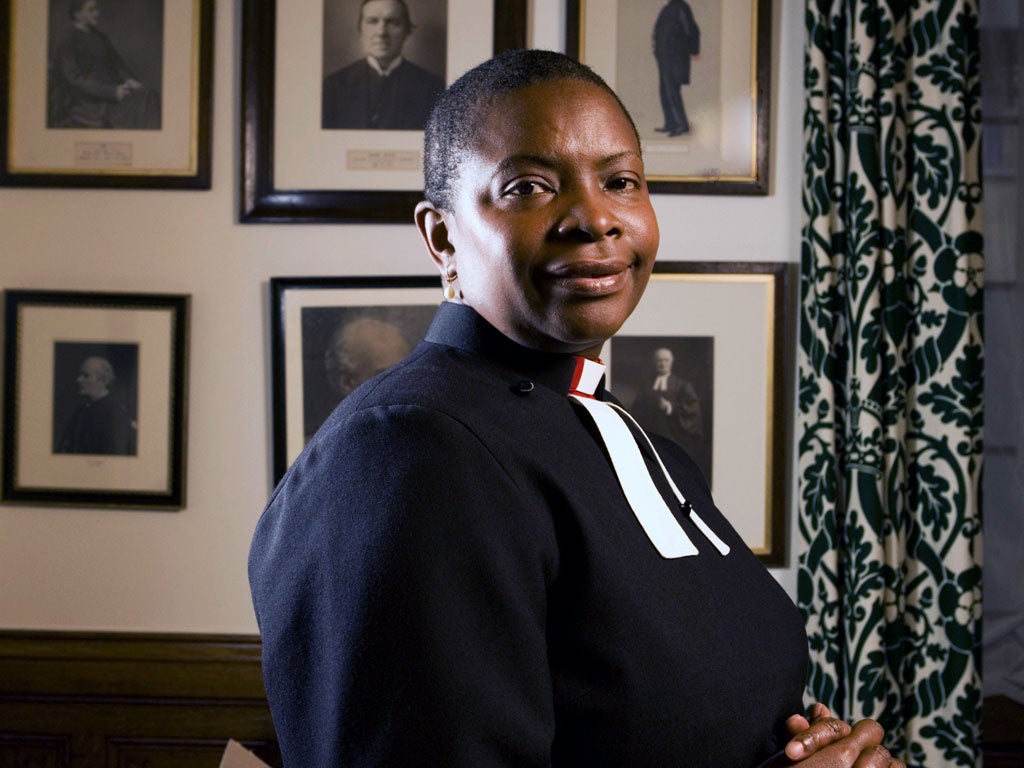'Even outstanding women struggle to rise in the CofE'
Female bishops are on the cards, but the rank and file believe they are excluded from the top jobs

Your support helps us to tell the story
From reproductive rights to climate change to Big Tech, The Independent is on the ground when the story is developing. Whether it's investigating the financials of Elon Musk's pro-Trump PAC or producing our latest documentary, 'The A Word', which shines a light on the American women fighting for reproductive rights, we know how important it is to parse out the facts from the messaging.
At such a critical moment in US history, we need reporters on the ground. Your donation allows us to keep sending journalists to speak to both sides of the story.
The Independent is trusted by Americans across the entire political spectrum. And unlike many other quality news outlets, we choose not to lock Americans out of our reporting and analysis with paywalls. We believe quality journalism should be available to everyone, paid for by those who can afford it.
Your support makes all the difference.Women priests are treated as second-class Christians, suffering from institutionalised sexism and racism within the Church of England, female clergy claim.
The accusations come as the church today marks a quarter of a century since the General Synod vote that paved the way for the ordination of women. Butit remains decades away from achieving equality within its ranks, with the proportion of women priests gaining paid posts at its lowest for a decade, according to research.
Despite similar numbers of men and women being ordained each year, statistics compiled at Durham University show that male vicars are almost twice as likely to be given a paid post. The figures come as the church debates the issue of women bishops before a final vote in July.
Of more than 250 men ordained last year, two thirds were given paid jobs. In contrast, more than 60 per cent of the 245 women ordained ended up in "self-supporting", unpaid jobs.
In 1994, when the first women were ordained, 68 per cent of them ended up in paid posts. The figure now stands at 38 per cent.
The Rev Rose Hudson-Wilkin, the first woman to be appointed chaplain to the House of Commons and a contender to become Britain's first woman bishop, said: "I believe the gap exists not only from a hierarchical position but in ordinary parishes. Often, if a man and woman apply for a post, they would much prefer a man even if the woman was outstanding. And it's not just any old man they'd prefer – it's a man who is white with 2.2 children."
She added: "I think it makes God sad to see us having this fight. We're fighting for our very existence within the church, for our place at the table." An attitude exists that "you can bring the broom and bring the coffee in, but you can't be at God's table".
More than 900 parishes have passed formal resolutions rejecting women priests. Research by Dr Miranda Threlfall-Holmes, chaplain at Durham University, reveals how far the church has to go. With a score of 100 representing 50/50 equality, her analysis of church data over the past decade shows a score of just 34.9 in 2010.
Although up from 18.6 in 2000, at that rate of progress the Church of England will not achieve full equality until 2052.
Dr Threlfall-Holmes said: "Women are still disproportionately likely to be shunted into non-stipendiary ministry, or to find themselves at a disadvantage in applying for posts of responsibility. Until the church makes an unequivocal statement about the fundamental equality of men and women before God, it seems that women will continue to be treated... as second-class Christians."
The Rev Kat Campion-Spall, an assistant curate at St Mary's Church, Merton, south-west London, said: "Clearly there are still no-go areas for women. Parishes can state that they won't appoint women clergy, and there are deaneries and dioceses where women can feel a lack of support from colleagues."
Britain's most senior women priest, the Very Rev June Osborne, Dean of Salisbury, said women come up against "institutional resistance at every level in the church", adding, "I think the presumption of those who have authority and ability to appoint is that women will be a more risky option."
In a statement, a CofE spokesman said: "The church does treat men and women equally. But he admitted: "It is true that a higher proportion of women have tended to serve in self-supporting rather than stipendiary posts.... Decisions are made on the basis of their individual situation and not on the basis of their sex; much depends on their personal circumstances as well as their aptitudes."
Sally Barnes, from the campaigning group Women and the Church (Watch), said: "We all know female colleagues who work full time in ministry for no pay and few rewards." She claimed "bad practice, inequality and discrimination" makes the work of many women priests harder.
The church remains partially exempt from sexual discrimination laws, and campaigners from Watch will repeat calls for it to come under the Equality Act in a debate at Westminster Hall this week.
Join our commenting forum
Join thought-provoking conversations, follow other Independent readers and see their replies
Comments